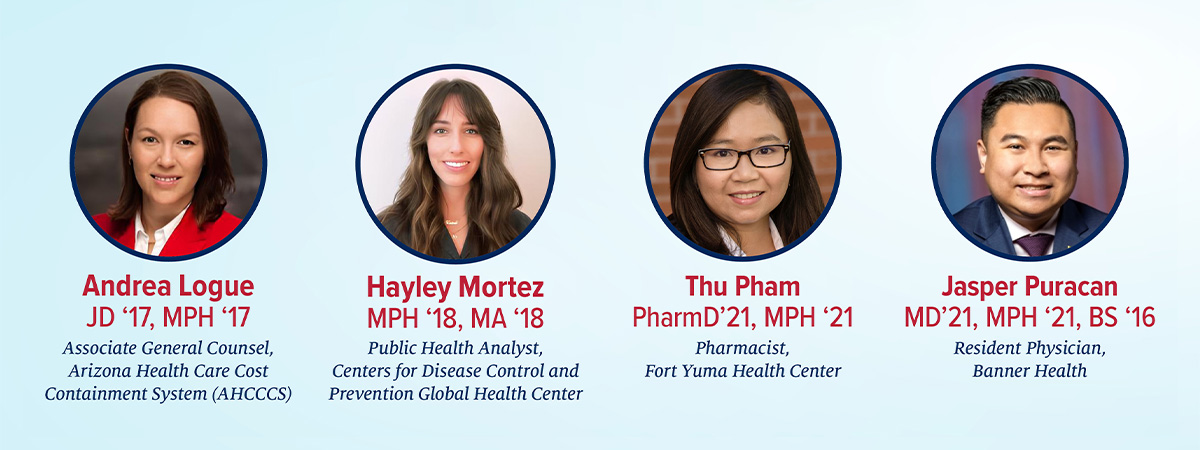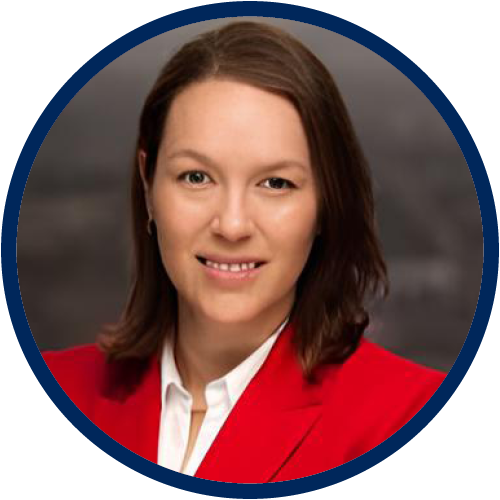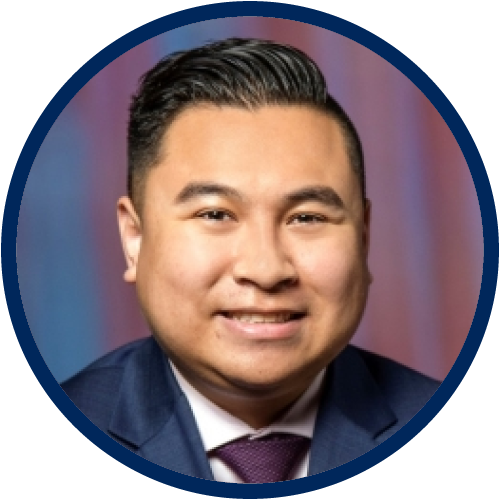Dual MPH Alumni Career Panel showcases paths and opportunities

The college hosted an alumni career panel with graduates from our Master of Public Health dual degree programs, an event designed to inform current and prospective students about the benefits of our dual MPH programs and the career options available to graduates.
The Zuckerman College of Public Health hosted alumni from our Master of Public Health (MPH) dual degree programs on April 30, 2024 for a career panel discussion designed to help current and prospective students understand the benefits and career options available with dual MPH degrees, and how they can best market their skills in the work force.
The alumni career panel showcased successful graduates of the college's Dual MPH programs, including our MD/MPH, JD/MPH, PharmD/MPH and MA/MPH programs. Each of these dual MPH alumni discussed their unique experiences and career paths, emphasizing the skills and knowledge gained from their dual degrees. The panel illuminated how public health intersects with Pharmacy, Medicine, Latin American Studies, and Law as well as the diverse career opportunities available to graduates of these programs.
![]() Watch the Panel Recording on YouTube
Watch the Panel Recording on YouTube

Meet the Panelists
JD/MPH: Andrea Logue, JD '17, MPH '17
Associate General Counsel for the Arizona Health Care Cost Containment System
Andrea initially pursued her public health degree with the idea of going into medicine, but she soon realized that was not what inspired her, and she shifted to public health. Through internships and relationships with public health professions, she discovered her passion for public health. She started the four-year JD/MPH program, dedicated the first year to law courses, the second year to public health, and the remaining years to a blend of classes from both colleges. After she passed the state bar exam to practice law, she secured a job in insurance defense specializing in medical malpractice. Here, she found a niche intersecting the healthcare and legal realms, working closely with physicians and patients embroiled in legal disputes. This provided a great introduction to public health and law on a smaller scale. She now works with the Arizona Health Care Cost Containment System (AHCCCS), as in-house counsel where she does a lot of public health policy work for the entire state. This role allows her to seamlessly integrate her legal acumen and public health expertise, navigating the complex landscape of Medicaid and impacting millions of citizens. Witnessing the tangible ripple effects of her work has proven both enlightening and fulfilling.


MA/MPH: Hayley Mortez, MPH '18, MA '18
Public Health Analyst, Centers for Disease Control and Prevention Global Health Center.
Hayley earned her undergraduate degree in Spanish and Pre-Medicine before transitioning to a career in Public Health. Working for the University of Arizona in the Supplemental Nutrition Assistance Program Education, (SNAP-Ed), she promoted health and wellness to low-income middle and high school students, sparking her interest in the public health field. Utilizing her Qualified Tuition Reduction (QTR) benefits, she pursued further education in Latin American studies and Public Health with a focus on Global Health. Her coursework delved into epidemiology, biostatistics, and medical anthropology, laying a strong foundation for her career. Inspired by her studies, Hayley joined the Centers for Disease Control and Prevention (CDC) through a Global Health Fellowship in 2020. Currently, she serves on the Strategic Partnerships team at the CDC's Center for Global Health, managing bilateral partnerships with international health ministries and institutes. Her role focuses on CDC Global Health diplomacy and collaboration efforts, leveraging her expertise in Latin American studies and passion for public health.
MD/MPH: Jasper Puracan, MD'21, MPH '21
Resident Physician at Banner Health
Jasper earned his undergraduate degrees in Molecular & Cellular Biology and Accounting before pursuing a dual Doctor of Medicine and MPH at the University of Arizona. Now in his third year of Psychiatry residency at Banner University Medical Center in Phoenix, he recognizes the vital intersection of Public Health and Psychiatry. Engaging with diverse communities has highlighted the socioeconomic factors affecting mental health care, while his MPH emphasis in Clinical Leadership has equipped him to advocate for systemic change. Understanding the Biopsychosocial Formulation in Psychiatry underscores the importance of addressing patients' biological, psychological, and sociological needs. He feels the dual MD/MPH degree has given him a more holistic view of patient care that drives his commitment to advocating for equitable mental health services and addressing social determinants of health. He believes that there are plenty of opportunities for physician leaders to utilize this background and the knowledge that comes from an MPH to advocate for real change.


PharmD/MPH: Thu Pham, PharmD '21, MPH '21
Pharmacist for Fort Yuma Health Center in Winter Haven, California
Thu earned her dual degrees in PharmD and MPH, specializing in Public Health Policy and Management. She now works as a Pharmacist at the Fort Yuma Health Center, part of the Indian Health Service (IHS), primarily serving the Quechan and Cocopah Indian Tribes, as well as other tribes in Arizona and California. Thu's childhood passion for medicine persisted into her adulthood, driving her to pursue a healthcare career. Despite initially considering pharmacy programs, a tuberculosis diagnosis redirected her focus towards public health. Inspired by the care she received during her treatment, Thu embarked on the dual degree program to contribute to community well-being. Although she didn't follow traditional routes into the IHS, her MPH background and involvement in a rural health program during pharmacy studies aided her in securing a position there. Thu firmly believes in the collaboration between pharmacy and public health professionals to serve communities effectively.
Takeaways from the MPH Dual Degree Alumni Panel
Work Options and Financial Support for a Dual MPH Program
- Considerations for Full-Time or Part-Time Employment in Dual Degree Programs. Not all dual degree programs recommend having a full-time or part-time job while enrolled in the program.
- JD/MPH: It could be challenging to juggle a full-time or part-time role. Look into Teaching Assistant or Graduate Assistantships/Associateships that offer more flexible time and financial assistance.
- PharmD/MPH: It is possible to pursue with a part-time job.
- MD/MPH: It is not recommended to have a full time or part time job. The UA offers the University of Arizona Primary Care Scholarship Program to help address the urgent need for physicians within the state of Arizona that covers the tuition (in-state equivalent) associated with medical education for those willing, in exchange, to practice primary care in a rural or urban underserved community in Arizona.
- Ask supervisor about workspace flexibility. Collaborate with your team and supervisor to adjust hours to accommodate full-time or part-time student status. Explore if your workplace offers scheduling flexibility to align with class schedules.
- Seek job opportunities at the University of Arizona. Look for Federal Work-Study, Graduate Assistantships/Associateships, or full-time positions at the UA that may provide financial assistance for tuition.
- Scholarships. Check out scholarship and financial aid resources offered at MEZCOPH: https://publichealth.arizona.edu/undergraduate/scholarships-and-aid
Dual MPH Enhancing the Academic and Professional Experience
- JD/MPH: Having an MPH in addition to a JD enhances your marketability as an attorney by equipping you with the ability to comprehend the statutory landscape and apply it to the social determinants of health, thus understanding how laws impact citizens. This additional background sets you apart, especially in the private sector, demonstrating to employers your unique combination of legal expertise and public health skills.
While many healthcare attorneys acquire this knowledge through daily practice, possessing an MPH allows you to immediately communicate in the public health language within the healthcare sphere, distinguishing you as a JD/MPH professional. The health law concentration may specialize in areas such as health torts (i.e. health negligence) or biomedical law, with a strong emphasis on case-specific studies.
Pursuing an MPH alongside the health law concentration complements your education, and offers an expanded skill set compared to solely focusing on health law, providing you with broader capabilities for your career. - MPH/MA: The MPH Global Health curriculum focuses on a broader, macro-level perspective of public health. While some public health coursework may seem straightforward, the MA in Latin American Studies from the College of Social Behavioral Sciences offers a humanities-oriented approach, enriching the writing experience gained from the MA program. This blend proves beneficial, especially when tackling quantitative projects in the public health field.
The integration of elements from the MA into the MPH program is particularly advantageous in the Global Health arena, as it addresses the social, political, and environmental factors influencing health behaviors. For instance, in courses like political ecology, these theories play a crucial role in public health endeavors such as managing infectious disease outbreaks. Understanding the anthropology of disease transmission is vital, considering cultural and social behaviors that impact its spread. This dual program not only provides professional advantages but also exposes students to diverse perspectives, enhancing their understanding of health and its intersections with various worldviews. - MD/MPH: Having an MPH sets medical students apart in residency applications, especially with the evolving academic landscape that now places less emphasis on scored board exams. The MPH, with its components like epidemiology and statistics, reinforces knowledge applicable to board exams. Beyond residency and into physician practice, an MPH opens doors to complementary career paths not accessible to MD or DO holders alone, facilitating transitions into healthcare administration and advocacy roles.
Additionally, the MD/MPH combination equips physicians to bridge diverse professional perspectives, acting as changemakers in supporting communities beyond clinical settings. This multifaceted role is crucial for physicians to fulfill, extending support beyond examination rooms and hospitals to various community levels. - PharmD/MPH: The MPH offers a comprehensive perspective on healthcare delivery and equips individuals with essential leadership skills crucial for strategic management. For instance, while Pharmacy education emphasizes personalized patient care, public health education focuses on addressing the needs of communities as a whole. In Pharmacy, leadership skills are touched upon, but through a Public Health lens, particularly in Policy Management, one gains a deeper understanding of leadership dynamics within specific contexts.
Pursuing a dual PharmD/MPH degree enhances one's ability to plan effectively and instills confidence in assuming roles within the pharmacy profession. By engaging with diverse populations and considering the broader social determinants of health, individuals are better prepared to serve their communities. Conducting a community health assessment prior to job applications allows for a detailed understanding of local cultures and health conditions, thereby empowering individuals to better support community needs in their roles.
Navigating the Job Market
- It takes time. Don’t get discouraged if you are not accepted for a role. Certain organizations may pose challenges for external candidates to secure interviews. Your resume may perfectly align with the position description, but internal dynamics and bureaucratic processes can be opaque. Therefore, it's crucial not to let the lack of response or interview calls affect your self-esteem or diminish your drive to pursue your goals.
- Leverage your capstone project in the workplace. To distinguish yourself after graduation, make the most of the opportunities provided by your college. Utilize the projects and experiences from your program to showcase your skills during interviews. Tailor your capstone project to highlight your strengths and accomplishments, turning it into a valuable asset that propels you forward in your chosen career path.
- You will learn on the job. Throughout your career, there will be ample opportunities for ongoing learning. Take, for instance, the experience of law school: it doesn't directly teach you how to practice law, but rather equips you with essential skills such as reading comprehension, stress management, and problem-solving. It's through the practical experience of practicing law that you truly learn how to be an effective attorney.
- Highlight your dual degree experience. Obtaining a dual degree serves as a testament to your capacity for learning and adept time management skills. Employers value individuals who can swiftly grasp new tasks or projects. Graduating with a dual degree showcases your ability to effectively manage multiple responsibilities and highlights your capability to thrive under pressure, completing two graduate-level programs within a specified timeframe. Your experience of multitasking throughout the program is a valuable asset that can be emphasized on your resume, LinkedIn profile, and during interviews.
Application Process
- All Dual Degrees: You will need to apply for both programs separately. This can either be submitted simultaneously or during the first year you are enrolled in one of the programs (JD, MA, MD, MPH, PharmD).
- Take an Introductory Class: If you want to see if the MPH program is the right dual degree option for you, you can take an introductory MPH class without committing to the degree while enrolled in other programs. If you decide you want to continue it is a separate application process for the MPH.
- Resource: For more information click the link: publichealth.arizona.edu/academics/dual-degrees
We extend our sincere gratitude to all our dual MPH alumni who participated in the career panel! Thanks for providing your experience and insights to help our current and future students find success!
Questions?
Learn more about the MPH dual degrees in the Zuckerman College of Public Health. Contact Anaiz Acosta with questions about how to apply, adacosta@arizona.edu.
Interested in connecting with alumni? Contact Amber Richmond, Manager, Alumni & Student Strategic Initiatives at amrichmond@arizona.edu.

